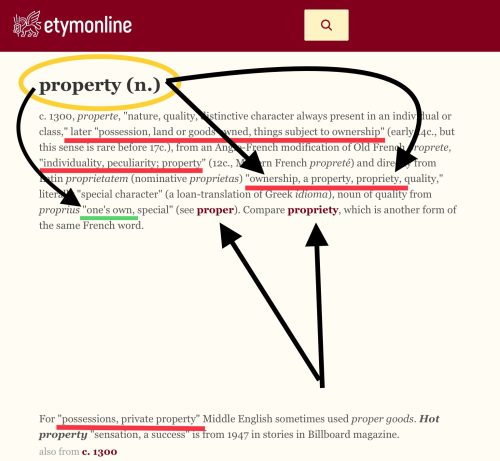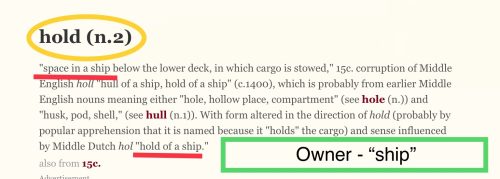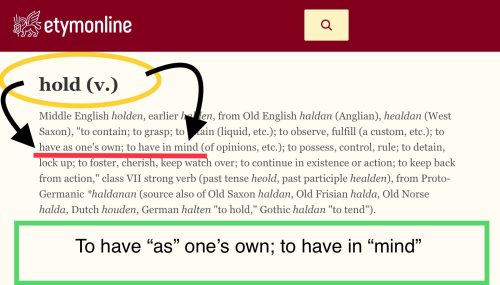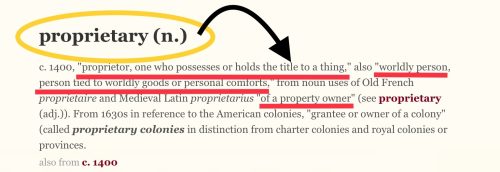The Capillary Wave: Word Index


“Property” is a legal word and steeped in law. Law and governance revolve around property; that which is proper. We know it is a legal word because it is not mentioned once in The Book of The Law: The Bible. The Bible deals with those things which are of God and lawful. Legal deals with those things of man, which are legal.
“Property” is to do with “one’s own”, which is why the closely etymologically linked word “proprietor” is also a legal term denoting “one who holds something as property, one who has the legal right or exclusive title”.
If you “hold” something “as” property, it clearly is not “your” property because if it was “your” property, it would “be” property and you would “own” it and not “hold” it for another. This is why the government can come and take “your” things that you “hold” without asking you.


- Note: Property is a complex issue at law and one which we discuss in depth with Gold members at Capillary Wave. In the simplest of terms; if you “owned” “your” property, you would not have to pay tax to someone else to use it. Careful and diligent study of the word “district” may help you to understand some of what is explained here. Countries are divided in to “districts”.
- proprietor (n.) 1630s, “owner, by royal grant, of an American colony,” probably from proprietary (n.) in this sense. OED describes it as “Anomalously formed and substituted in 17th c. for the etymological word PROPRIETARY.” In the general sense of “one who holds something as property, one who has the legal right or exclusive title” to something, it is attested from 1640s. Related: Proprietorship. also from 1630s

“Property” is very closely related to the word “proper”, which is mentioned four times in The Bible, once in the Old Testament and thrice in the New Testament.
- proper (adj.) c. 1300, propre, “adapted to some purpose, fit, apt; commendable, excellent” (sometimes ironic), from Old French propre “own, particular; exact, neat, fitting, appropriate” (11c.) and directly from Latin proprius “one’s own, particular to itself,” from pro privo “for the individual, in particular,” from ablative of privus “one’s own, individual” (see private (adj.)) + pro “for” (see pro-). Related: Properly; properness. As an adverb, “very exceedingly,” from mid-15c., but since 19c. the use is considered vulgar. From early 14c. as “belonging or pertaining to oneself; individual; intrinsic;” also as “pertaining to a person or thing in particular, special, specific; distinctive, characteristic;” also “what is by the rules, correct, appropriate, acceptable.” From early 15c. as “separate, distinct; itself.” Meaning “socially appropriate, decent, respectable” is recorded by 1704.